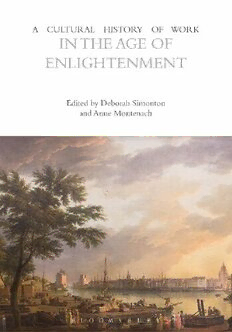
A Cultural History of Work in the Age of Enlightenment Volume 4 PDF
249 Pages·2018·3.335 MB·English
Most books are stored in the elastic cloud where traffic is expensive. For this reason, we have a limit on daily download.
Preview A Cultural History of Work in the Age of Enlightenment Volume 4
Description:
The Enlightenment led to revised ideas about work together with new social attitudes toward work and workers. Coupled with dynamism in the economy, and the rise of the middling orders, work was more frequently perceived positively, as a commodity and as a source of social respectability. This volume explores the cultural implications of the transition from older systems based on privilege, control and embedded practices to a more open society increasingly based on merit and ability. It examines how guild controls broke down and political and commercial systems loosened. It also considers the theoretical justifications that brought new binding ideas, such as the strengthening of ideology on home, domesticity for the female, and work and politics for the male. North America embodied the extremes of these transitions with free workers able to make their way in a society based on ability and initiative while solidifying the ravages of the slavery system.
See more
The list of books you might like
Most books are stored in the elastic cloud where traffic is expensive. For this reason, we have a limit on daily download.
